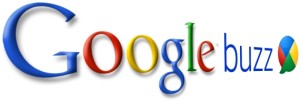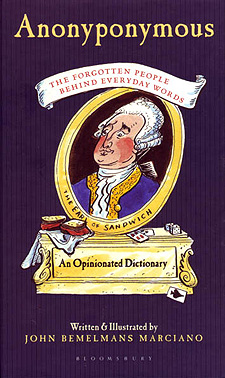What's with April 15th?
Today marks the one blemish in April’s usually blooming record: Tax Return Day. Eh, well, April is also the beginning of tornado season, but I digress. A post office’s nightmare and a CPA’s dream, tax season gives a whole new light to mathematics and itemization. People find themselves scrambling through old shoeboxes for missing receipts and trying to mentally calculate volunteer work and “charitable” donations they can claim in hopes of squeezing every penny out of their return.
But why April 15th? Who chose this day to make people sweat an audit and pile themselves in papers? So I decided to dig around a little bit, and by a little bit, I went straight to Wikipedia. C’mon, everyone uses it, but no one wants to admit to.
According to the highly distinguished website, Congress was the one to put “tax day” on the calendar. When we, “America”, ratified the 16th Amendment in 1913, which allowed Congress to institute an income tax, they chose March 1st of the following year as the deadline for filing returns. However, with the Revenue Act of 1918, which I probably need to pick up a text book to see what that was about, they up and moved the date to March 15th. It wasn’t until 1955 though, that Congress finally settled on the April 15th deadline. I think it was because April is prettier, but apparently it was to spread out the workload for the IRS. It’s also rumored that the growing middle class was filing more and more returns and the government wanted a little more time to hold on to the money. Sneaky.
Although fulfilled with this great public encyclopedia knowledge about something that I still get my dad to do for me every year (yes, I’m 25), I also don’t want to spread lies. Therefore, I decided I needed to verify this information. After some intense Google searching, I stumbled across an article on CNN from April 15, 2002, which basically laid out the same information verbatim. And everyone trusts CNN.
So there you have it. That’s why April 15th is, well the day it is. So put the remote down, turn your laptop on and get to filling.
Contributed by: Keri Lynch
Zoo Seeking Namers
The Louisville Zoo is seeking a name for the latest addition to its family: a baby boy giraffe. The zoo is taking submissions from now until April 25th, so get noodling on some cute entries for this little guy.
TV Show About Jobs
Apple is an amazing brand. And in its fanatics’ mind, nothing is more on-brand than Steve Jobs. He is mysterious, smart, passionate, innovative and wears a mean black turtleneck. And, unlike other great brands’ CEOs, he is so interesting that a TV show mirroring his life is in the works. Yep, a TV show.
You may have seen the show Undercover Boss which takes strides to show the human side of CEOs of companies like White Castle, Waste Management and 7-Eleven. And other CEOs like Tony Hseih of Zappos.com have taken to Twitter to engage fans. In fact, as of today, Tony has more than 1.6 million followers. But a sitcom, now that’s a whole new level of love for (or fascination of) a CEO.
I wonder if it’s a show Jobs would watch (on his iPhone or iPad of course). Would you check it out?
What the buzz, Google?

...............................................................................................................................................
I woke up this morning to find out something was different with my Gmail. Overnight it seems as if Google and Facebook have fornicated their technological impulses and created the newest love child of the social networking world: Google Buzz. Though Twitter might demand a paternity test from Google, this “buzzing” community is the latest of social networks trying to innovate fast-track communication.
Google Buzz, channeled through Google's popular Gmail service, allows users to micro-blog and upload pictures as well as link to other users and websites. And like one of its predecessors, Twitter, it lets you “follow” other members and blog about, well, whatever you want. However, it definitely has Facebook’s eyes, allowing you to comment on updates directly without all the weird @, #, etc. symbols that I still don’t understand with “tweets”. It also has the highly coveted “like” feature that Facebookers obnoxiously seem to enjoy. (Hmm maybe Google Buzz will get a dislike option that Facebook has yet to cave to – could be interesting.)
However, unlike the launch of other social networks, Google Buzz has already taken the initiative for current Gmail account holders. Before I even heard the buzzing, I apparently was following a couple dozen of my closest Gmail contacts and a handful were following me. I also had a link to the “Buzz” conveniently placed under my Inbox link, equipped with a Simon Says-esque color wheel, just in case I missed it.
A Bad Case of App Envy
I have bone to pick about apps. With the launch of the iPhone and now the iPad, apps have become big business and many large brands have created apps to enhance engagement with its products. The world has gone app crazy – or so it appears.
Here’s my problem. In North America, approximately 9 million Americans have an iPhone while Blackberry has nearly 15 million users. So, WHY are apps for the iPhone significantly outnumber the number for BlackBerry. Us BlackBerry users still want to be able access Rolling Stone’s concert vault, hold up fake lighters, look at maps of foreign countries and anything else that apps can help me do.
Come on developers. Don’t forget about the BlackBerry users. We need fancy apps to pass the time in line and at stop lights too.
War & Words
The National Museum of Language in College Park, MD is curating an exhibit on the role of the War of 1812 in the development of American English. (Thanks to the Visual Thesaurus for the tip)
The role of the museum is to promote a better understanding of language and its role in history, contemporary affairs, and the future. Orin Hargraves' post highlights some interesting history on the plight of Noah Webster to further separate his language from that of established Samuel Johnson.
From the Language Lounge on Visual Thesaurus:
Perhaps the greatest lexical victor of the war was the much older word spangled, which got promoted to a plush job that it will keep forever. Francis Scott Key, unavoidably detained on a ship in Chesapeake Bay on a September night in 1814 and compelled to watch the bombardment of Fort McHenry by Royal Navy ships, was moved to write the words that eventually became the national anthem. The epithet "star-spangled," interestingly, goes back to the 16th century but never seems to have been applied to anything but the sky until Key's moment of inspiration for the Star-Spangled Banner.
Candy Brands: Brach's

......................................................................................................................................................................
What would Halloween be without candy corn? It has been enjoyed for over 100 years. According to Brach's, the top branded maker of candy corn, each year Americans buy enough Brach's candy corn that if the kernels were laid end to end, they would circle around the Earth 4.5 times. Brach's candy pumpkin, known by the trademark name "Mellow Cream" is the most popular candy pumpkin. They are popular both for their unique texture and for being fat free. Candy pumpkins are made using the same process used to make candy corn. The ingredients include corn syrup, real honey, and sugar.
Amusingly, candy pumpkins played a role in the U.S. Implementation of Daylight Saving Time. Since the 1960s, candy makers had wanted to get the trick-or-treat period covered by Daylight Saving. They believed if children had an extra hour of daylight, they would have more time to collect candy, which would boost candy sales. During the 1985 U.S. Congressional hearings on Daylight Saving, the candy industry went so far as to put candy pumpkins on the seat of every senator, hoping to win a little favor. Soon, Daylight Saving Time was extended through the first Sunday in November.
By: Ashley Popham
The Etymology of Forgotton Folks

As namers, we use words like "neologisms," "hybrids," and "current usage words" with every project we work on. A neologism (from the French "new + body of knowledge") is a made-up word or something that has been coined for a specific purpose (ex: Aceba). A hybrid is two words fused together (ex: FunHub), while a current usage word is something you would find in the dictionary.
If you think about it, every word was at one point in time a neologism, a new word, something that someone made up. Someone had to fabricate it somewhere in history. Words become interesting parts of our vernacular when we have an association that gives them a new definition.
Anonyponymous: The Forgotten People Behind Everyday Words by John Marciano hits the shelves today, and takes a different approach at examining the origins of current usage words. Coining a word himself, John fuses "anonymous" with "epononym" to introduce a new word into our vocabulary; "anonyponymous" refers to eponyms that were created based on otherwise anonymous people in history. It provides some fascinating references to very obscure people (and moments) in history.
Read more
Swim at your Own Risk

......................................................................................................................................................................
Shark Week Returns
Summer vacation is drawing to a close, and the start of a new school year is just around the corner. Hopefully you have been able to take a nice, relaxing trip to the beach ... and survive. The time has come again for the annual terrifying, yet thrilling, Shark Week on the Discovery Channel. The 'fear returns' on August 2nd, 2009 with an action packed week filled with informative shark facts, attack stories, myths, shark tracking strategies, and much much more.
Conveniently enough, our family vacations usually fell around the first week in August, the general time for Shark Week to be aired on the Discovery Channel. Nothing says relaxation like curling up with a blanket and popcorn watching shark attack stories, only to fearfully head out on a boogie board the next morning. You know you have seen enough Shark Week when a plastic bottle floating atop the water sends you running out of the ocean shrieking with fear, convinced that the fin of a Great White Shark was lurking in your direction... Especially when Read more
Find out if you have a way with words...

Here are the answers to the "Have a Way with Words" post riddles.
1. The word 'wholesome.'
2. The dictionary.
3. The letter 'e.'
4. Racecar.
(Give yourself an extra point if you knew the dictionary definition of this type of word. Palindrome: noun: a word, line, verse, number, sentence, etc., reading the same backward as forward www.dictionary.com)
5. The letter 'r.'
6. The letter 'm.'
7. Silence.
8. Incorrectly.
How'd you do? Do you have a way with words?
Contributed by Carrie Friedrich
